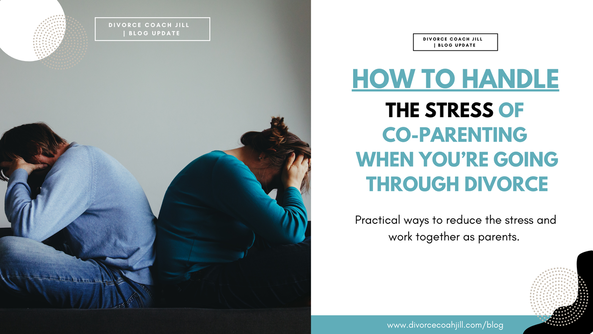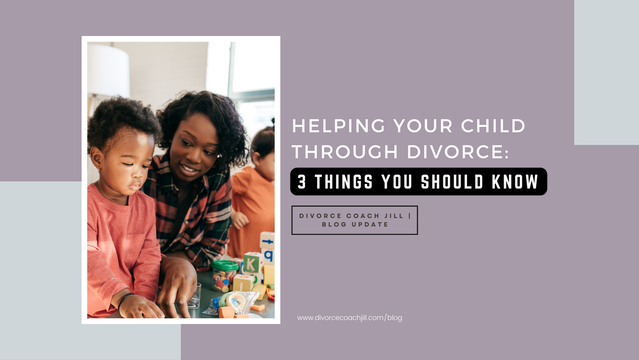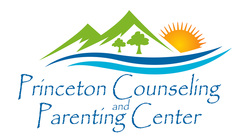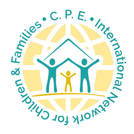Going Through a Divorce on a Budget: 5 Tips for a Less Stressful and Less Expensive Experience2/20/2023 Going through a divorce can be an incredibly stressful experience, especially if you are trying to do it on a budget. However, there are ways to minimize the stress and the financial impact of divorce. Here are five tips to help you have a less stressful and less expensive divorce:
1. Be organized. Keeping track of all of your financial documents, bills, and other important information is crucial during the divorce process. Collect at least 3 years of credit card bills, bank statements and tax documents. This will help you to understand your past spending patterns and prepare a budget so that you know what you need to live on. 2. Seek mediation instead of litigating. Mediation is often a faster, more affordable, and less adversarial option than going to court. In mediation, a neutral third party helps you and your spouse to reach an agreement on all of the issues related to your divorce, including finances, property division, and child custody. 3. Communicate with your spouse. Communication is key to a successful divorce, especially when it comes to finances. Try to understand your soon-to-be-ex’s (STBX’s) point of view and that both of you are probably worried about finances. Try to be transparent about your financial situation and be open to negotiating a settlement that works for both of you. This can help you to avoid costly and time-consuming legal battles. 4. Hire a divorce coach. Divorce coaches, like me, can provide support, guidance, and resources to help you navigate the divorce process. They can also help you use your attorney and other divorce professionals more efficiently. A divorce coach will help you manage your emotions so that you can make smart decisions as you go through divorce. In addition, divorce coaches can help you prepare for mediation and feel confident that you’re making the best decisions for your future. 5. Work with your STBX to come to agreement on as much as you can without the use of attorneys, mediators or other divorce professionals. The more that you can agree to on your own, the less you’ll spend on your divorce. Divide the items in your house, talk about custody and parenting schedules and what you want to do with your cars on your own if you can. We all know that divorce can be a stressful and expensive experience, but there are ways to minimize the stress and financial impact of divorce. If you’re organized, choose the right divorce process, communicate effectively with your STBX, hire a divorce coach and handle some of the negotiation on your own, you can have a much less stressful and less expensive divorce experience. Divorce is a difficult and overwhelming experience and can be especially challenging for those who are co-parenting with their soon-to-be-ex (STBX). You want what's best for your children but you may have difficulty communicating with your STBX. You both may have hurt, angry, and resentful feelings toward each other. There are things you can do to reduce the stress of co-parenting and make it more effective.
1. Communicate with your ex as much as necessary. It's critical to keep the lines of communication open for the sake of your children. Schedules, pick-ups and drop-offs, extracurricular activities, medical issues and other details should be discussed. The more you can agree on in advance, the less stressful things will be when they arise. And, if disagreements do arise, try to handle them calmly. You don't want your children to see you arguing or hear negative things about their other parent. But you don't have to communicate about anything unrelated to the children. If there's something going on that you'd rather not tell your STBX, it's ok to keep it private. You're navigating a new relationship with your STBX and you can decide how much you share and how much you keep to yourself. 2. Do not use your children to communicate. Using your children to communicate will only harm your children in the long run. Your children should never feel responsible for things that happen between their parents. If they are required to communicate because you aren’t able to, your children can feel an incredible amount of stress. It’s best to find ways to communicate including text, email and phone calls. 3. Focus on your future. You and your STBX’s relationship is changing. You’re no longer going to be married, you’re going to be co-parents. That means that everything that happened in the past doesn’t really apply to your new relationship. Let go of the past and focus on your future as co-parents who both care about your children. Be polite and respectful no matter what your STBX does. Eventually you’ll be able to develop a healthy co-parenting relationship. Make sure that you’re taking care of yourself so that you won’t be triggered by any inappropriate text or confrontational attorney letter. 4. Talk about feelings with your children Divorce brings up so many emotions. It’s important that you create an environment where your children can express all of their feelings, even if it’s difficult to hear. Ask your children how they’re feeling and listen to what they say. Listening without talking is an essential skill that parents need to be effective at. When your child expresses a fear, ask them to tell you more. Then ask them, “Is there anything else?” When your child is completely done talking, then you can try to address some of their concerns without minimizing them. Empathize with them and say, “I can see why you feel that way.” Be honest with your children and let them know that it’s hard for you too but let them know that you’ll all be ok. Come up with ideas together on how you can make things better. If your children feel comfortable talking about their feelings, you can all move forward and have hope for a really good future. Final Words Divorce is one of the most difficult things to go through in life. You have to take care of yourself to manage the stress of co-parenting. If you communicate effectively with your STBX, focus on your future and talk about feelings with your children, you will have an easier time managing the stress of divorce and co-parenting. If you’re struggling with any of this, reach out to a therapist or an experienced divorce coach. Divorce mediation is a process where you and your soon-to-be-ex (STBX) work with an impartial third party to negotiate the financial and parenting aspects of your divorce agreement. There are ways to prepare yourself emotionally for the divorce mediation process to make it less stressful and more effective.
Keep In Mind That It's Not About Who Wins or Loses You and your STBX are going to have disagreements as you go through your mediation process. It’s important to remember that winning is not as important as reaching an acceptable agreement for both parties. Be prepared to let go of the need to win and instead focus on finding a resolution that works for both of you. Know What’s Important To You Knowing what’s important to you is key to understanding how to prepare for mediation. Think of the dream solution – if you could have everything you want, what would that look like? Then think about what you could give up. Do you want to keep the marital home? How important is that to you? Are you agreeable to 50% custody? Knowing what’s important to you and what you can give up will help you keep your emotions in check so that you can get to an agreement. Focus On The Future The purpose of divorce mediation is to agree on what’s going to happen in your and your children’s future. Sometimes during mediation one party brings up something that happened in the marriage in the past. It’s usually not helpful to discuss emotional issues from the past during mediation. If you or your STBX starts to do this, respectfully redirect your attention to discussions about the agreement and the future. Mediation is about moving forward so think about the following questions:
Keep Emotions Out Of It During mediation, you’re negotiating one of the most important transactions in your life. You must be able to think clearly in order to make all of the important decisions that you need to make. If you’re emotional, you won’t be able to think clearly. If you feel upset, take a few deep abdominal breaths and try to relax. It may also be helpful to take breaks throughout the mediation process to clear your head. Otherwise, you may say or do something that you'll regret later. Final Words Divorce mediation can be a very difficult, emotional process. However, by preparing yourself mentally and emotionally for the journey ahead, you can make the experience a little more manageable. If you're considering divorce mediation, it's important to talk to someone who can help guide you through the process and offer support. A divorce coach can be an invaluable asset during this time – they can provide information about what to expect during mediation, help you prepare for mediation, and help keep you accountable throughout the process. The effects of divorce can be devastating for children. Children of divorce are more likely to struggle academically, mentally, and in their relationships. They frequently have feelings of betrayal, anger, and sadness. While some children can overcome these obstacles, others may struggle well into adulthood.
The good news is that there are several things parents can do to help their children through the process so that they are protected from the negative consequences of divorce. Here are three crucial things to keep in mind. Explain What’s Happening in Your Family in Age-Appropriate Terms and Listen to What Your Children Have to Say Telling your children that you’re getting divorced is one of the most difficult conversations you can have. It’s important to tell your children together with their other parent about the divorce. Create a script together so that you both agree on what to say. Avoid blaming either parent and instead emphasize that both parents still love them very much. You can help your children understand and cope by explaining that sometimes couples grow apart and sometimes they should live apart. Let your children know how their lives will change. Children are primarily concerned about themselves and focusing on how their lives will be impacted is helpful. Let them know how their lives will be the same and what may change. Encourage your children to ask questions and provide answers to their questions. Only provide details that are absolutely necessary for them to know. Younger children don’t need to know much about why the marriage is ending. Tell them simple, concrete terms - for example, which parent will move out, where they’ll live, what school they’re going to, etc. Older children may want to know more details about the divorce but it’s not necessary to go into too much detail. You can say that you tried to work to make things better. You can reassure them that you both will continue to work together to be there for them. It’s important to allow your children time to process their feelings. Don’t push them to talk. Instead let them know that you’re available to them any time they feel like talking. Check in with them in the next few hours after you tell them and continuously over the next days, weeks and months. Children react differently, with some children having emotional reactions at different times. The relationship between you and your spouse while you’re going through divorce has an impact on your children. Even if you and your spouse get along in front of your children during your divorce, your kids can still sense if there's tension. They may become anxious themselves or even start to act out. It’s important to maintain a consistent routine, communicate openly with your kids, and to be understanding of their feelings. It's also important to avoid putting your kids in the middle of any arguments. This will help your kids feel more secure during this time of change. Make Co-Parenting A Success Co-parenting is when both parents share the responsibility of raising their children even though they’re separated or they don't live together. Children have to deal with their parents separately which is very different from what happens in an intact family. They’ll be living in two different homes and having two different sets of rules. They may feel different from their friends and may be ashamed of being in a divorced family. Parents must work together and focus on their children. Children require patience, love, and support from both of their parents. Parents need to put their own feelings aside and communicate with each other about the children’s schedule, how the children are doing emotionally, and how they can work together to support their children through this. There are steps you can take to help protect your child from feeling caught in the middle of arguments.
Think of your children’s other parent as a colleague or coworker who you need to work with for the good of your child. Don’t discuss past emotional issues. Focus on the present and future in your discussions in a non-emotional manner. Working With A Therapist Can Help Children of divorce can benefit greatly from seeing a therapist. In individual therapy, they're more likely to feel safe expressing their authentic selves and discussing the hurtful feelings they may have towards their parents. They may also feel more comfortable discussing complex topics, such as their fears and anxieties, with a therapist than with their parents. Furthermore, a therapist can provide children with tools and resources to help them cope with the challenges of divorce. Final Words Divorce is never easy, but with the right tools and support, you can help your child through it. Your child's emotions are valid. No matter what your child may say, they are going through a lot of change and upheaval during a divorce. It's important to validate their feelings and let them know it's okay to feel the way they do. They need your support now more than ever. We hope these tips have given you a good starting place as you begin to navigate this difficult time. Divorce is one of the most stressful experiences and involves complex emotional, financial and legal issues. In order to be able to think clearly through your divorce, it’s so important that you take care of your emotional self.
1. If it feels wrong, don’t do it The ability to set boundaries is crucial and can be hard, especially after separating from a long-term relationship. What do healthy boundaries look like? Not doing something that feels wrong or uncomfortable is a great starting point. If your Soon-to-be-ex (STBX) tells you to do something and you don’t feel comfortable doing it, you need to be able to let him or her know that you disagree. This doesn’t mean that you should be disrespectful, it means that you can let them know that you appreciate their perspective. But in the end, you get to decide what you want to do. 2. Stay calm when you communicate with your STBX Communication is key in any relationship, divorce included, and being calm will help you effectively communicate with your STBX. Try not to react to the emotion in the other person’s voice, this can escalate a simple conversation into an argument. Instead, recognize that you don’t have to respond right away. Take some time to breathe deeply, and think about how you want to respond. Not only will this prevent an argument, but it’s less emotionally draining on you. Lastly, if the conversation is getting escalated, remove yourself until you are both able to respond calmly. 3. Trust your instincts Your instincts are there to tell you when a boundary is being pushed too far and it’s key to listen to them. When you can feel yourself being pushed too far or being put in an uncomfortable situation, trust when that gut feeling kicks in and walk away. 4. Don’t be afraid to say “no” Sometimes we say yes because we feel intimidated or want to please others. Saying “no” helps to establish healthy boundaries and enables others to understand what to expect from you. When a situation arises, you might feel obligated to go along for the sake of agreement but if you say yes and then feel resentful, that’s not good for anyone. Learning to say no and not feel bad is key to taking care of your emotional self. 5. Let go of what you can’t control You won’t be able to control everything. There are things that may happen that are not ideal for you or your children. In most cases, everything will still turn out ok, even if it’s not exactly what you wanted. Detaching and letting go are such important skills when you’re going through divorce and will save you so much stress. If you’re struggling with this, I recommend practicing mindfulness and meditation. Caring for yourself emotionally can make a huge difference in helping you move forward through your divorce in a healthy way. When you’re able to take better care of yourself mentally and physically, your decision making will improve, you'll be able to think clearly, you’ll be able to be there for your children and you can conquer anything that comes your way! When I was going through my divorce, I didn’t know what to say to my kids. I was doing my best to protect them so I didn’t share much with them about the divorce. I assumed they would open up to me if they needed to talk. Knowing what I do now, I would do things differently. Following are some key points to help kids open up during divorce.
1. Start things off with honest communication. How you are going to communicate with your children during divorce starts when you tell them about the divorce. It’s important to tell them together - with both parents if possible - without blaming either parent. You don’t have to give too many details, but answer their questions as they come up. Kids are focused primarily on themselves and mostly care about how the divorce will impact them. They’re typically not thinking about their parents’ feelings too much. You can give them information like:
It’s so important to be available to your kids when they want to talk. You can intentionally create situations where they’re relaxed such as when you’re driving in the car or before they go to bed. Here are some ways to encourage them to open up with you:
Kids live in the present moment - they’re much better at doing that than adults. When they don’t like what’s happening, they may say hurtful things to their parents. Try not to get caught up in the things they say during a stressful moment. They may seem extremely upset one day, but that doesn’t mean it’s how they’re going to feel the next day or next week. Do your best to let little things go and not to take it personally. As a parent, it’s devastating to know they’re hurting, but kids are very resilient. Their moods will not last forever. However, there are times that you should consider reaching out for help. There are some clues to show if your child is simply upset and processing their feelings or if they are having deeper struggles. Here are some examples:
These behavior changes are signals that your child isn’t coping well with the divorce and may need extra help from a counselor or professional. The great news is that the most stressful parts of your divorce will not last forever, and that there are clear ways to keep the lines of communication open with you and your children. Many times, parents can have even deeper relationships with their kids after divorce when the strain of the marriage isn’t a part of the parent/child relationship. In the meantime, these strategies can give you a positive direction for how to get your kids to open up. When you have children and get divorced, the final agreement must include a parenting plan to clarify what will happen after the divorce regarding the care of the children. A parenting plan outlines the parenting schedule - when each parent will see the children and the logistics of how that will happen. It also covers other relevant issues like how decisions should be made about medical situations, the children’s education and religious affiliation.
Everything that’s put into the agreement is part of a legal document, the Marital Settlement Agreement or the Separation Agreement, that’s filed with the court. Parents must follow that agreement and can be brought back to court if they don’t. A child-centered parenting plan is one where you put your children and their wellbeing first. There are many things that get in the way of putting children first like work schedules and significant others. However, when you center the plan around the needs of the children and what’s best for them, it will help create a structure for them to grow into emotionally healthy adults. Here are some key tips to keep your parenting plan child-centered:
Does every communication with your ex end in you feeling frustrated and emotional? Then your ex is probably a high conflict person. Divorce is hard enough when both parties are reasonable. Throw a high-conflict ex into the mix and it can feel unbearable. Communicating peacefully with a high-conflict ex may seem impossible, but there are things you can do to communicate effectively and navigate this process with less stress.
Here are tips to keep in mind when communicating with a high-conflict ex:
You can do this! Your children are worth the effort. If you can use these tips successfully, conflict between you and your ex will decrease and you and your children will benefit. Divorce and separation are challenging no matter what, but when you have a difficult ex, the challenge increases exponentially. However, it can be managed, with the right perspective and some proactive strategies.
Your ex may have made you feel bad about yourself during your marriage/relationship so your self-esteem is low. You may be exhausted from years of dealing with your ex’s difficult behavior and you can get triggered by this. How do you co-parent when it’s so hard to control your emotions? Follow these 5 guidelines to make co-parenting with a difficult ex more effective: 1. Build your self-esteem and be patient with yourself. Treat yourself as you would treat a friend. Be patient with yourself – if you mess up, recognize that you’re learning how to deal with a very difficult situation. Change your self-talk from “I can’t believe I let her get to me.” to “I’m doing the best I can and it’s ok.” 2. Don’t get triggered by your ex’s provocative remarks. This is easier said than done. If you can take a pause before you respond, you’ll give yourself the time to think through how you’d like to handle the situation. A pause enables you to respond rather than react. Take a few deep breaths, meditate, call a friend – anything that helps you calm down. 3. Seek a parenting coordinator through the courts. Courts can appoint a parenting coordinator to coordinate scheduling and communication issues between the parents. It’s helpful to have a professional who is trained to deal with high conflict divorce handle these issues. 4. Develop your divorce strategy. What are your priorities? What kind of life do you want in 6 months or 1 year? Without a strategy, you can get derailed by your ex’s behavior. Remind yourself why you’re leaving the marriage and what kind of life you want going forward. This will give you perspective beyond the current struggle. 5. Don’t make your child the middleman. Don’t use your child to send messages to the other parent, don’t vent to your child about the other parent and don’t ask your child for information about the other parent. Let your children know that it’s not ok to do those things and if either parent tries to do any of those behaviors, they will know that it’s not ok. They can learn to set boundaries with their other parent. The life you want is waiting for you. Ignore the noise that’s coming from your ex and celebrate that it can’t control you anymore. Focus on the present moment, breathe deeply, notice nature, appreciate freedom. Once you recognize that finding your peace has nothing to do with anyone else, you’ll have the life that you’ve been dreaming of. Divorce is one of life’s most challenging experiences but during a pandemic it’s just that much more difficult. For instance, how do you handle custody arrangements when families are supposed to be quarantined? What if you and your ex have different ideas about what is safe? One parent may think that it’s ok to see close family and friends and the other may not be seeing anyone. These situations may make it necessary for divorcing couples to communicate and agree on a temporary custody arrangement that’s different from what the original agreement specifies.
And if you’re still living with your ex, it can be even more complicated. You’re probably having a harder time keeping apart from each other. If there's conflict between you (which there usually is in divorce), how do you keep that away from the children? It sounds like a recipe for disaster. All of this is stressful for adults, but it’s really stressful for children who don’t understand what’s going on. Following are guidelines to help parents co-parent effectively during the Covid-19 pandemic: 1.Talk to your ex about putting your anger aside for the good of the children. Recognize that this is an emergency and that you need to work together in order for your children to feel better during this stressful time. 2.Together, maybe by Skype, reassure your children that everything’s going to be ok. Ask your children if they’re worried about anything and work together as a family to help each other. 3.Provide consistent routines such as waking up and going to sleep at the same time every day, doing school work at the same time every day, etc. Routines can help children have more stability. 4.Focus on the positives. You probably have more time to spend with your children. Play games, laugh, be in the moment and go outside every day you can. When you pay attention to positives, you have less time and focus on all the things you don’t have control of. This is a difficult time. It’s ok to put the logistics of divorce on hold right now. Good communication, working as a team with your co-parent and focusing on the positives is more important now than it ever has been. Children need as much support as possible, and they need their parents on the same page. Set aside your differences, at least for the time being, and focus on handling this crisis for the good of you and your children. |
AuthorJill Barnett Kaufman, MSW, LCSW and Certified Parent Educator is an experienced clinician who helps clients discover new ways to resolve a variety of challenges and bring more happiness and peace into their lives. Archives
November 2023
Categories
All
|
|
If you are in crisis or in need of emergency assistance, please call 911. |
|












 RSS Feed
RSS Feed


